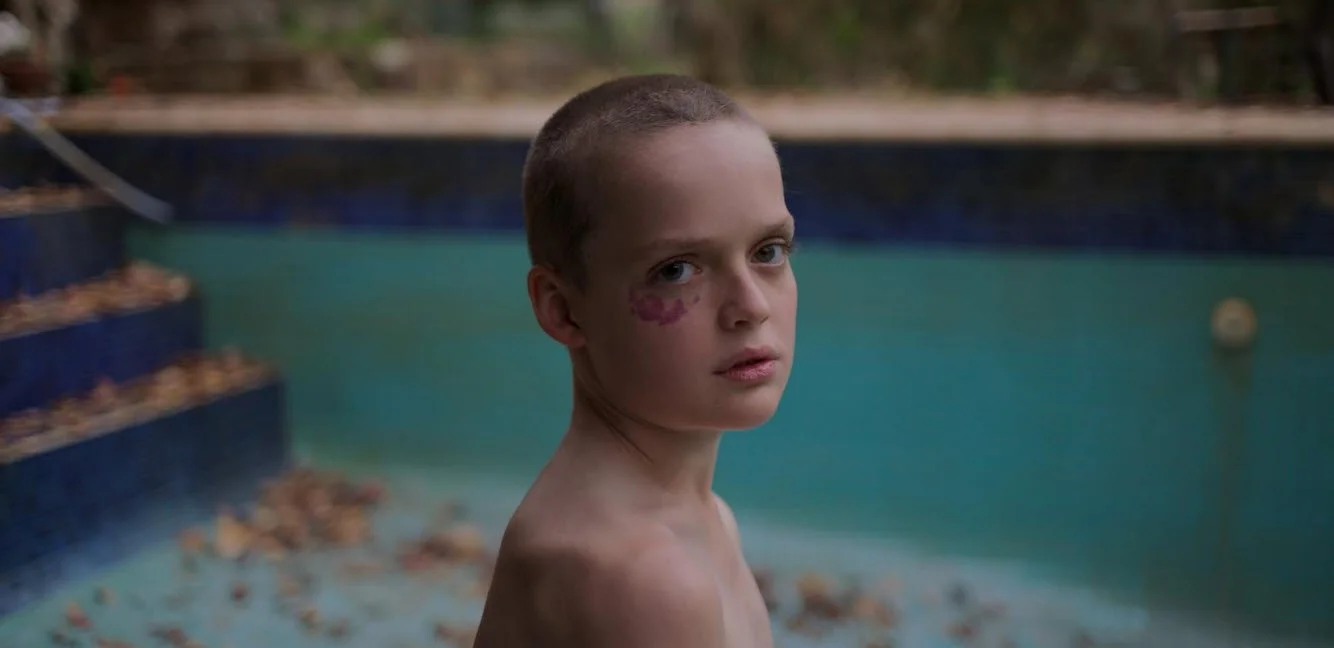Oculus (2013) - Review
As someone who is more than content to experience something like a movie or video game much later than everyone else—and then write a review about it—I often look through other people’s reviews or through top-ten lists for new movies worth watching. I’ve seen plenty of horror movie countdowns over the past decade, and one movie that kept popping up on people’s lists was Oculus. You’d imagine it would have to be good if it’s on so many people’s lists, and it’s a horror movie about an evil killer mirror, right?
Image: Blumhouse Productions
Pros
Child actors do a good job, especially considering how central they are to the plot
Some good creepy moments
Editing makes the movie more intriguing with how it jumps around in the timeline of events
General premise and the decision to make the protagonist seek revenge and redemption via a scientific “ghost hunter” method is interesting
Cons
Still suffers from the horror movie trope of smart people making dumb decisions
Editing during the climax gets to be a bit much; it ends up just being disorienting and a little hokey
Takes a while to really get interesting
Plot & Thoughts
Tim (Brenton Thwaites) has just been released from psychiatric care on his 21st birthday after having spent eleven years locked up for killing his father (Rory Cochrane). His father had killed his mother (Katie Sackhoff) and was about to kill Tim and his sister, Kaylie (Karen Gillan), but they were able to escape after Tim shot his father. After a decade of treatment, he was finally recognized as “sane” and released into the world, where he could meet up with his sister to reconnect and reintegrate with society. While Tim was in the system learning about how his dad was a murderer and his mother was the victim of a psychotic break, his sister was out in the foster care program thinking of when he’d finally get out so they could fulfill the promise they made as kids. That promise, of course, was to find the mirror that was responsible for their family’s collapse and destroy it.
Tim had repressed a lot of his memories and accepted the stories his doctors told him. He had even forgotten the promise, but Kaylie is determined. She’s determined to not only destroy the mirror, but clear the names of her brother, mother, and father by documenting the process. She goes through a lot of trouble to obtain the mirror at an auction, brings it to their old childhood home that had somehow remained vacant all this time, fills the home with plants, lights, and cameras, and sets up a system to prevent her and her brother from being caught in the mirror’s trap once again. As Kaylie introduces all her plans and argues with Tim about what is real and what isn’t, both relive their memories as children, starting with when they moved into the house and up to the inevitable moment Tim killed his father. Essentially, we watch two stories unfold simultaneously.
Image: Blumhouse Productions
Oculus is an interesting movie for a number of reasons. One reason is that it’s willing to tell its story in a somewhat unorthodox way. While this tends to slow down the pacing of the movie and remove some of the tension in some spots, it does ultimately make Oculus more interesting. Had these two stories been told separately in their own film—or just in order—it wouldn’t have been nearly as intriguing, which makes the editing of the film do the heavy lifting. Unfortunately, when the climaxes start to intersect with each other, it gets a bit hard to follow because of how frequently it’s jumping from past to present. That may be the point, but that doesn’t really add to the tension, in my opinion; it just seems hokey.
Another reason Oculus is interesting is that the danger of the demon mirror doesn’t come from the mirror attacking you or anything like that. It comes from what the mirror shows you and makes you think is real or not real. It’s a simple game of illusion that can be enough to make anyone go insane or do something they didn’t mean to do. Similar to the way Nightmare on Elm St would be able to surprise you by making you think something is real and then it turning out to be a dream (which is the reverse of what you want in that movie), Oculus plays with what you see and makes you wonder where the illusion begins or ends. This, of course, plays into the disorienting nature of the editing.
Image: Blumhouse Productions
All that being said, Oculus isn’t really a scary movie or an exciting one to watch. It has its creepy moments, some of which are diminished by minor details that could have been done better. A majority of Oculus, though, is just the drama between the brother and sister in the present and the inevitable mental collapse of the parents in the past. It’s a decent drama, and the acting from the entire cast is really good, so it’s not exactly boring. However, it’s also not that interesting because it’s somewhat predictable. How many horror movies have you watched where the parents slowly lose their minds, and the kids have to save the day? Perhaps I’ve watched too many, but I’d argue that Oculus doesn’t really do much new in this area, so I was mostly just waiting for everything to unfold. The most interesting parts of Oculus are the nature of the mirror’s illusions and Kaylie’s plans to document and destroy it, which tend to take a backseat to the family drama. In other words, the least interesting part of the film was the horror.
TL;DR (Conclusion)
I like Oculus on paper. I think it’s got an interesting concept, and I think it’s executed quite well with good acting, directing, and editing. It does a good job of slowly pulling you in and then hooking you with big moments. However, it’s a movie in which you know how everything ends, and the mystery is in seeing how everything unfolds up to that point. This makes it something I don’t really have a desire to watch again because once you know the ins and outs of the plot, the few creepy moments, the family drama, and the intriguing nature of the premise aren’t really enough to really make it an entertaining rewatch.
















![Immaculate (2024) | [Insert Demon Baby/Good Jeans Pun Here]](https://images.squarespace-cdn.com/content/v1/5d39e718d8ec690001509614/1738429487595-5IJ1I8Y8YIXL59W37Z24/Immaculate_01.jpg)















